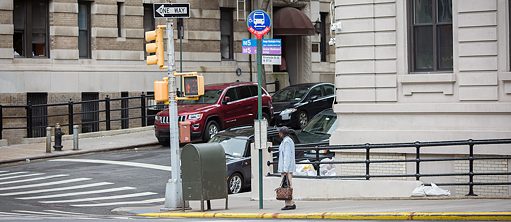Riverside Drive Revisited: Uwe Johnson's New York
On the occasion of the first complete translation of Uwe Johnson’s magnum opus Anniversaries (New York Review Books, 2018, trans. Damion Searls), the Goethe-Institut New York presents a book launch, event series, and installation in our public space, inviting the public to relive the New York of the 1960s, and to find in this German classic new relevance for our current era of tumultuous world events, mass media consumption, and urban inequality.
Uwe Johnson (1934-1984) lived in New York from 1966-1968, and started writing Anniversaries (Jahrestage) while living here. The book takes place across different places and eras: New York in the 1960s and the German province of Mecklenburg in the 1930s are the main settings of the novel. The narrative extends over 365 days from August 21, 1967 to August 20, 1968.
Johnson weaves personal history with larger world events, making the fictional character Gesine Cresspahl and the New York Times equal protagonists of the novel. Johnson spent about 15 years working on the massive novel (nearly 2000 pages in the original German), which includes more than 500 characters and 125 places. An almost documentary intertextuality pervades the character of the book, taking a postmodern turn as Johnson no longer believes in an omniscient narrator. The quotes that are liberally integrated throughout the book allow the reader to construct their own narrative.
In our installation you can relive time and place, the decisive elements of the novel, and delve into Johnson’s work and research while he labored on his massive masterpiece. Our event series will kick off with the launch of the new translation, featuring translator Damion Searls in conversation with writers Renata Adler and Liesl Schillinger. Our film series will include Margarethe von Trotta’s rarely-screened epic adaptation of Anniversaries, which boldly transports the “unfilmable” novel into a cinematic language, and a handful of films from the 1960s which, like Johnson, take radical departures from traditional narrative to look critically at New York and East Germany in a turbulent time.
-
10/29
- 11/30/2018 -
11/01
-
11/02
- 11/03/2018 -
11/08
-
11/13
-
11/15
